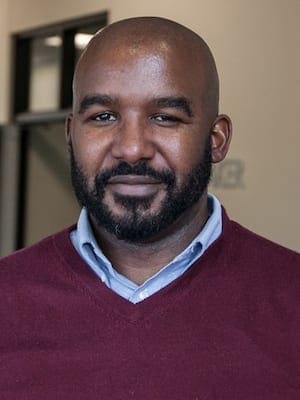Community relations have changed since Michael Brown was shot and killed by Officer Darren Wilson more than six months ago.
There has been an increase in discussions about how police patrol urban communities.
There has also been open dialogue about race, white privilege and their influence on how people view and respond to law enforcement.
Multiple investigations have been launched into how certain municipalities use the process of fines and court costs to bring in much needed revenue, typically at the detriment and expense of minorities and the poor.
Although changes are occurring, certain things are staying the same.
Communities that were already separated because of the issues that were simmering below the surface before the Brown shooting still have tensions within them.
Violence has continued to occur, from further police-involved shootings to people ambushing and killing unsuspecting officers.
Certain police officers have continued to do things that bring suspicion on themselves and their profession.
For example, a video surfaced recently of seven St. Louis City police officers arresting a suspect.
During the process of taking the suspect into custody, one of the officers said, “Hold up, everybody, hold up. We’re red right now, so if you guys are worried about cameras, just wait.”
The officer then turns off the dashboard camera, leaving anyone who saw the video to wonder how much unnecessary force was used to take the suspect into custody.
Many people have asked what can the church do and say to help during these times.
Some congregations have participated in town hall meetings. Others have made the commitment to begin relationships with other congregations that are made up of members that don’t look like them.
Still others have committed to being centers of reconciliation for the communities in which they are located.
In response to the question, “What can the church say or do to help?” some have responded with counter questions: “Should the church be doing anything? Is it really the responsibility of the church to engage in these tough conversations?”
By the silence of many congregations, it would seem like the answer is “No.”
I understand why some congregations are silent. Issues related to poverty, urbanism, discrimination and injustice may not seem relevant to the world they live in.
Yet, as members of God’s family, it is still part of our responsibility to make sure that people are being treated the way that God wants them to be.
What can the church do to help people treat others the way God wants them treated? We can begin by speaking and acting prophetically.
Not in the sense of predicting some supernatural event. Instead, we can share the message through word and deed that we have already received from God for such a time as this.
That message is: We are all equal before God, regardless of race, economic status, gender, professional employment or any of the other things that may separate us politically and socially.
We all have a responsibility to reflect this equality in how we treat one another. Power, position and authority are not to be abused for any agenda.
When power is abused, we all have a responsibility to speak out against it. When we fail to speak out, we are showing our desire to preserve self over seeing justice done.
God will hold us all accountable for our fidelity to God’s desires for equality based on God’s love expressed through the sacrifice of Christ.
 Terrell Carter is director of the Foundations in Ministry program for Central Baptist Theological Seminary in St. Louis. He is the author of “Walking the Blue Line: A Police Officer Turned Community Activist Provides Solutions to the Racial Divide.” His writings can be viewed at his website, and you can follow him on Twitter @tcarterstl.
Terrell Carter is director of the Foundations in Ministry program for Central Baptist Theological Seminary in St. Louis. He is the author of “Walking the Blue Line: A Police Officer Turned Community Activist Provides Solutions to the Racial Divide.” His writings can be viewed at his website, and you can follow him on Twitter @tcarterstl.
Editor’s note: Carter’s previous columns related to Ferguson can be found here.
A pastor, author and educator living in St. Louis, Missouri, he is the author of several books, including The Gospel According to Broadway and Taking Apart Bootstrap Theology: Gospel of Generosity and Justice.

